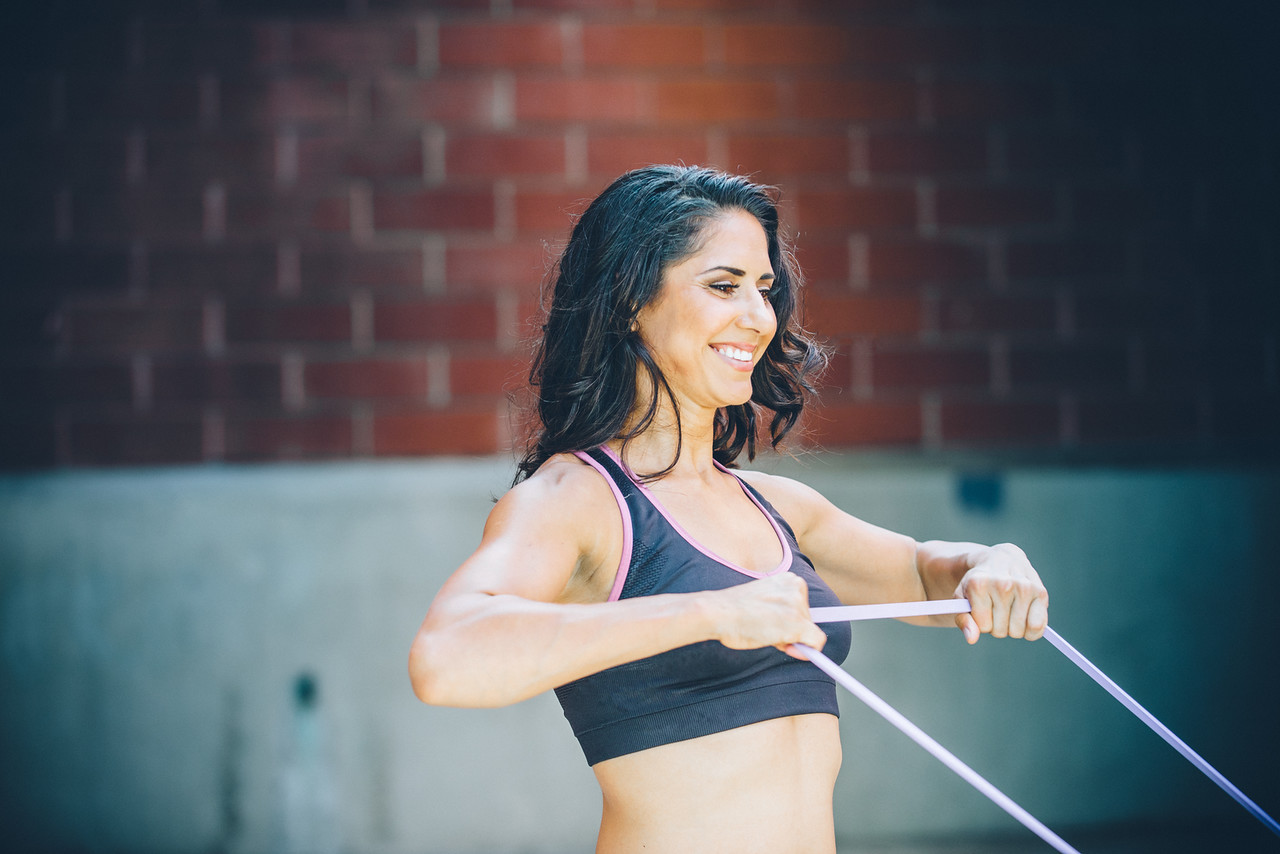Coaches, man. They can be everything good or bad in your fitness journey. You rely on your personal trainer or coach to push you through gnarly workouts, to encourage you to go to the gym instead of watching Netflix, or to fire you up for that PR. Finding a great coach is a lot like dating though. You’ll experiment with a few good ones until one day, you come across a great one.
In college I ‘tried on’ two personal trainers before I met my most influential one. He was knowledgable, experienced, and professional like all good trainers are. But what set him apart was what he inspired me to be. He didn’t argue with me, judge me or ever try to talk me out of something. He focused on my goals and sparked my curiosity for the human body long before fitness became my career. Training with him one semester influenced the next 10 years of my life. I went from being a client to becoming a group fitness instructor, then personal trainer, Pilates instructor; to running half marathons, experimenting with CrossFit and now Olympic weightlifting.
A great personal trainer or coach will add value to your life. They’re not just there to get you from Point A to Point B. Any coach can do that. Great coaches, however, inspire you to level up in all areas of your life. Jen Sinkler recently wrote a post that captures the essence of what great coaching (and weightlifting) can do to empower women and take them out of the vicious deprive-and-binge diet cycle and the ‘exercise as punishment’ mindset. Her article illustrates how weightlifting took one woman’s mindset from fear [of bigness, of weightlifting, of muscle] to one in which she owned her bigness, her presence and her power.
One might argue that this mind shift is a result of weightlifting itself and not the coaches involved, but having a great trainer can have a positive influence in guiding you toward that path. It all comes down to selecting the right one.
How do you find one? You gotta know what to ask and look for. Because it ain’t rocket science!
Before you select a trainer, ask these questions first:
What is this trainer’s experience and education like? Just because a trainer has a degree, multiple certifications and years of coaching experience doesn’t mean he or she is a great coach for you. When looking at a potential trainer’s background, ask her about her education and experience. What blogs and books does she read to keep herself educated on the human body? Does she attend any workshops or conferences throughout the year? Who are her mentors? What do those mentors specialize in? What kinds of people has she trained in the past? What are her own personal passions and pursuits on the fitness front?
Just because your commercial gym assigns you a trainer, doesn’t mean you have to stick it out with that person so do your homework.
If a trainer is certified and has coached 500 hours, but hasn’t read a single book or blog post outside of Bodybuilding.com in the past year, or attended a single seminar or workshop then you’re looking at a trainer that doesn’t give a shit about learning or about you. You need to consider the entire package not just one or two elements of one’s background or how a trainer looks. Recently, I chatted up with a new trainer and when we got into a discussion about continuing education he actually scoffed at the idea of attending workshops or seminars. He said ‘he prefers to read an online course from the beach’ and call it a day. He has big muscles; he has all the right credentials and some coaching hours under his belt. I’m sure his clients see results too. However, some of the most successful and prominent coaches in this industry invest in education several times of year. Mike Boyle (former coach at Boston University and for the Boston Bruins) recently said in an interview that after 20+ years in the game, he still takes notes at fitness conferences. And my favorite strength coach from Cressy Sports Performance, Tony Gentilcore, is a voracious reader dedicated to increasing his knowledge war chest every year. A trainer dedicated to his ongoing education will be more valuable for you than the ripped trainer who never reads a book and still thinks you need to down a protein shake 22.8 minutes after a workout to make #gainz.
What is this trainer’s specialty? You want to find a trainer whose specialty aligns with your needs and goals. For instance, if your goal is to win a bodybuilding competition, a trainer that specializes in fat loss is not well suited for your goals. Likewise, if you’re coming back from an injury select the trainer that has experience or knowledge about your particular injury. A student of mine is recovering from back surgery and was recently looking for a trainer to help her get stronger after surgery. When I discussed it with her I knew that I was not the best fit because I don’t have any experience with that specific population. As much as you may love a specific trainer, make sure you select the one whose specialty and experience aligns with what you need.
What is his or her training philosophy? A good coach will have a training philosophy of some kind and you should know what it is. What your prospective trainer believes in will tell you what you can expect from training with him or her. For instance, my training philosophy revolves around building resilient bodies through no bullshit, safe strength training, incorporating the ‘big three’ (squat, deadlift and bench press), and empowering people to make realistic, lifestyle changes one habit and thought at a time. I also believe in the power of the Pilates method to complement a strength-training program and to improve muscular balance, coordination and alleviate/prevent pain.
Based on this, a prospective client might infer the following about training with me:
– There will be strength training involving the 3 big lifts
– There will be an emphasis on technique and proper form
– There will be no fancy, gimmicky exercises or equipment to try and trick you into feeling like you’re getting a good workout
– There will be an emphasis, depending on one’s goal, on injury prevention and improving muscular imbalances
Do you click? Your coach might have the best resume on the planet but if you don’t click with her, it won’t work out. One person might thrive under the watchful eye of a sergeant-like trainer while another prefers to have an emphatic, goofy or serious, quiet type. I’m not a rah-rah-rah or scream in your face type of trainer. I aim to be realistic, energetic and understanding but I can smell BS from a mile away. If I program a squat into your program, I expect you to squat (unless of course, it’s not safe for you to do so). We won’t spend the hour gabbing about our boyfriends and brushing each other’s hair. Compatibility is critical for the trainer-trainee relationship to work. I refuse to work with a coach I don’t like and you shouldn’t either.
Finally, how much will it cost? Money is a huge, huge factor in selecting the right trainer and this is where I’ll hit you up with some #realtalk
Personal training is a luxury service. You’re investing in your body and health so please don’t make the careless decision of picking a trainer just because he’s affordable. The more experienced or specialized a trainer is, the more it’ll cost but this doesn’t mean you need to spend a fortune on personal training. If finances are an issue consider looking for small group training instead of one-on-one. You can also ask if that trainer offers an online solution such as custom online programs and check-ins. Or, perhaps you invest the money in a few fitness DVD’s or a group fitness studio to keep you accountable. I understand clients’ sensitivity around money because it’s important, and trust me, I’ve been there. Paying for a trainer offers the following:
– A knowledgeable coach who will customize a program to fit your needs and skill level
– Individual attention while you train to help you move better, with proper technique and do so efficiently
– An accountability partner that motivates you and adjusts the program as needed
– An educator. A great coach will share knowledge and resources with you because she believes in empowering you with information
– Hours providing free consultation, motivation, getting you to adhere to a program
– Free therapy sessions, because let’s be honest, trainers are also part therapists 😉
Now consider this: If you are paying a trainer $65+ an hour wouldn’t you expect him or her to meet all the requirements above and then some? Hell. Freaking. Yes!
And if you were paying your trainer $15 a session would you expect him to email you once a week with a motivational quote, work around your schedule when you’ve gone and cancelled the last three sessions or go out to bat for you on the training floor?
Eh, it’s possible but highly unlikely. It’s a lot like hiring a financial advisor. If you’re paying the minimum amount possible, that advisor won’t call you up with the best deals he knows about. He’ll save that for his premium clientele because those folks value his services enough to pay for it.
Final thoughts
If you’re on the fence about working with a particular trainer, invite him or her out to coffee or ask for a consultation where you can discuss your concerns, your objectives and just get to know the other person. After all, you’re paying for this person’s knowledge and services, and if your personalities don’t sync up, you won’t enjoy meeting up with this person 2x a week to train. You may also want to observe how he or she trains others so don’t be afraid to ask if you can observe a session. I don’t know a single trainer who would turn down a potential client because he didn’t want to be watched.
Now it’s your turn. What are your biggest concerns about hiring a personal trainer? What do you look for in a great coach?


